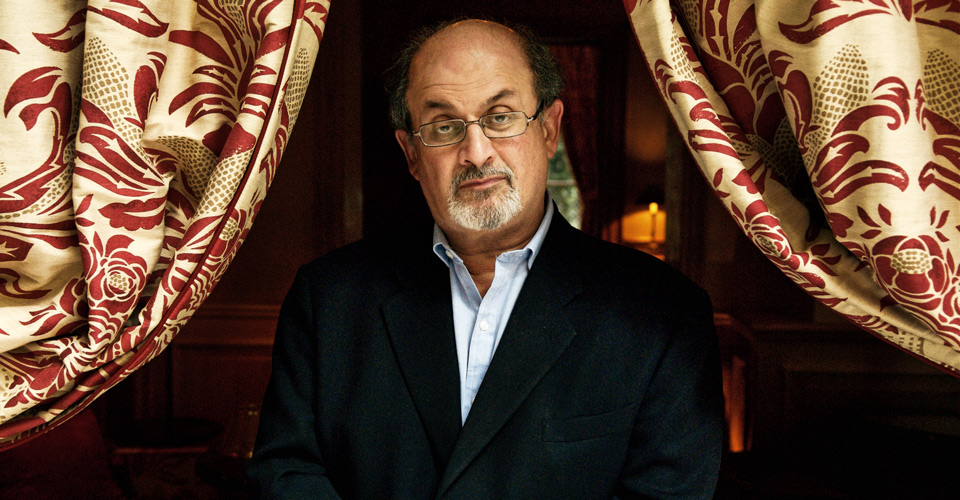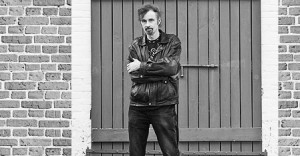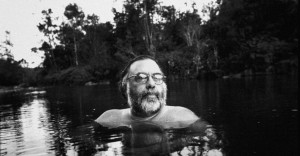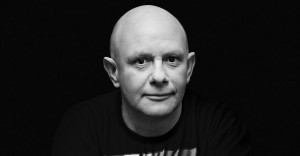Mr. Rushdie, do you have an optimistic view of the world?
No. (Laughs) In one word! I think it’s very difficult to be a writer in this moment of the history of the world and be an optimist. Anyway, darkness makes better comedy.
What motivates you to write?
I’ve got nothing else to do! I always wanted to write. The only other plan that I had in my life is that I wanted to be an actor. That didn’t work out! I had always thought that if there was a film of Midnight’s Children, the part I would like to play is the fortuneteller. I thought, since I made up the plot of the novel, if the film ever gets made I should play the fortuneteller.
Well, now the movie has been made. Were you in it?
The director hired me, but I fired myself because the last thing you want to happen in that scene is for the audience to be thinking, “Isn’t that Salman Rushdie?” (Laughs) It would just take your attention away from where it should be. We cut the scene out in the end anyway.
Too bad.
But my greatest regret about a part that I wasn’t able to play was when I was approached by Will Ferrell’s company to play a part in what was then called “Untitled Will Ferrell Nascar Movie,” which became Talladega Nights.
What kind of part would Salman Rushdie have played in Talledega Nights?
They had this idea, just one shot in which three very, very unlikely people were seen as NASCAR drivers. And I think they approached Julian Schnabel, Lou Reed, and me. (Laughs) And we were all supposed to be wearing the uniforms and the helmet, walking in slow motion with the heat haze. That would have been fantastic, but all of us couldn’t do it. I was in the middle of a book tour, Lou was on a music tour, Julian was doing something else, and in the end they just dropped the idea and it didn’t happen. I would have loved to do it.
You recently published an autobiography about your experience living in hiding for 10 years after the publication of The Satanic Verses caused Ayatollah Khomeini to issue a fatwā calling for your death. Did it feel good to finally get that off of your chest?
Yes. I’ve waited a long time to tell it because I wanted to reach a point where I was distant enough from the material that I could write it objectively. I didn’t want it to be some kind of emotional blurt. I didn’t want it to be like an Oprah episode. So I waited 23 years since it began. I also wanted to write not just about the years of the fatwā, it’s also about my earlier life. Truthfully, I had never thought I would write an autobiography.
Why not?
When people asked me earlier on, I would say, “I’m not interested. Why should I write an autobiography?” I’m not interested in writing about myself. The reason I became a writer was to write about other people.
You’re not a particularly nostalgic person?
No. I just unfortunately acquired the curse of an interesting life.
Would you be a different writer today if you hadn’t been threatened?
No. If you knew nothing about my life – if you had never read a single thing about my life and all you had was the books – and you just read the books there isn’t something strange that happens in 1989. I don’t think you would see that there was a colossal rupture in this writer’s life at this moment and that the books after that are completely different. I think the books have their own continuity and they’re making their own journey.
Do you still have the urge to look over your shoulder from time to time?
No, not really. It’s actually been 10 and a half years since there was any requirement to be careful about anything. That’s a long time. I’ve been living in New York and London for the last 10 years and I lead a perfectly straightforward life.
I heard that Midnight’s Children was under wraps during production and had a different name. Was that for fear of protests by Muslim radicals?
No. What happens when you’re filming in India – not just India, but south Asia – if there’s a book or project that the media are very interested in, they descend on the project in huge numbers. It becomes a real difficulty. So the reason for putting a dummy title on it and all that is because we didn’t want attention. It’s hard enough to make the film without having all these people fluttering around the edges, insisting on access and interviews and this and that.
Are you quite famous in India?
(Chuckles) Yes, just a little bit. It’s not like being Madonna, it’s not like being U2. It’s not that kind of famous. I can walk around perfectly normally. After all, most of a writer’s life is spent in a very private condition, in solitude trying to do his work.
Return to Top


Short Profile
Name: Ahmed Salman Rushdie
DOB: 19 June 1947
Place of Birth: Mumbai, Maharashtra, India
Occupation: Writer





















I do enjoy the musing of Mr Rushdie. There is something really authentic and self aware about this man.Now that Christoper Hitchens is gone maybe he can take over that mantle.
Mr. Rushdie’s humor is infectious. He is really good at what he does and he tends to give you the kind of world view that makes you lie back and hold a drink in your hand even if you have missed your rent by several months and you see your landlord walking towards you with some very serious looking men. To put it simply, his novels are sublime…
Love it